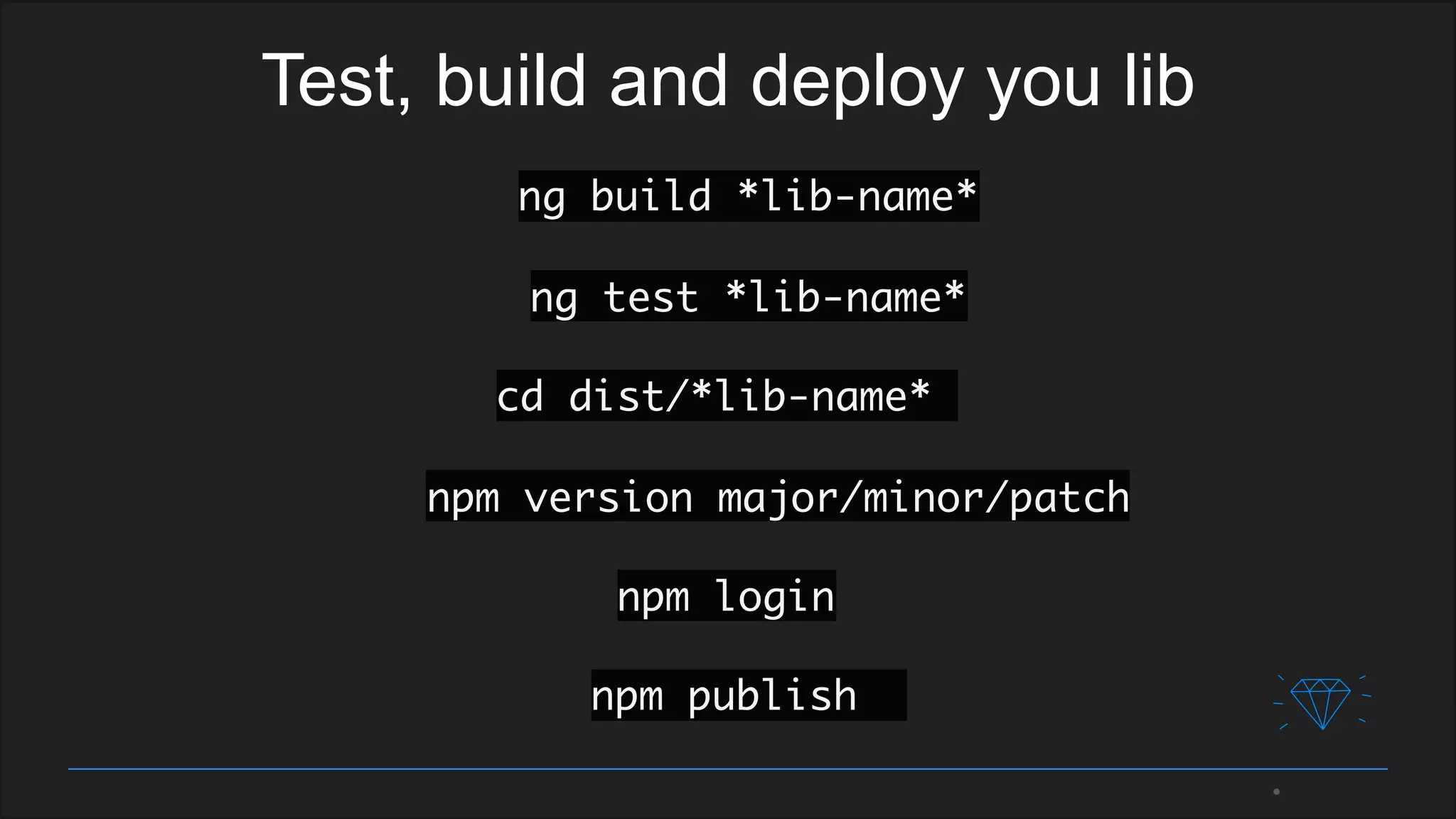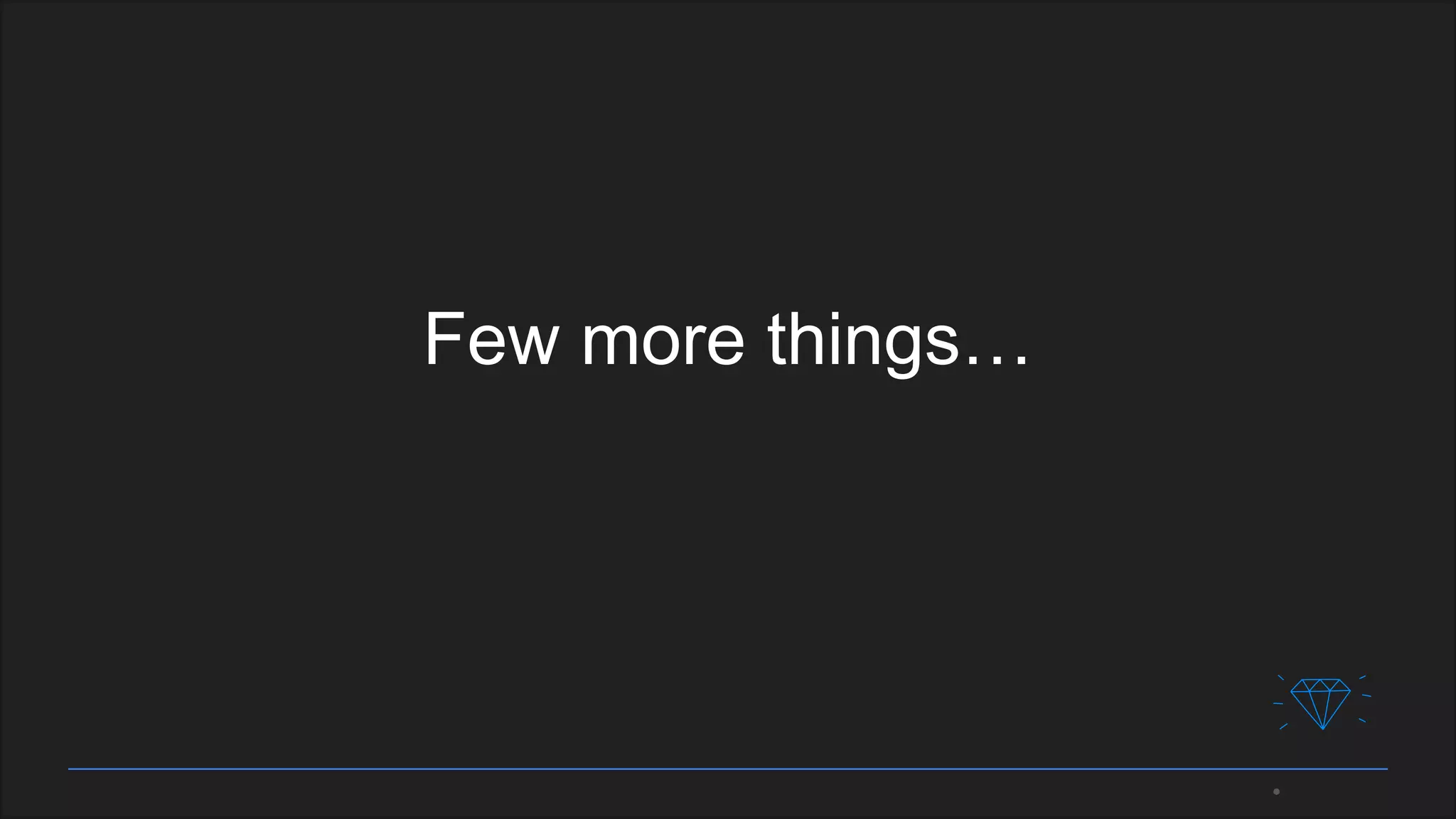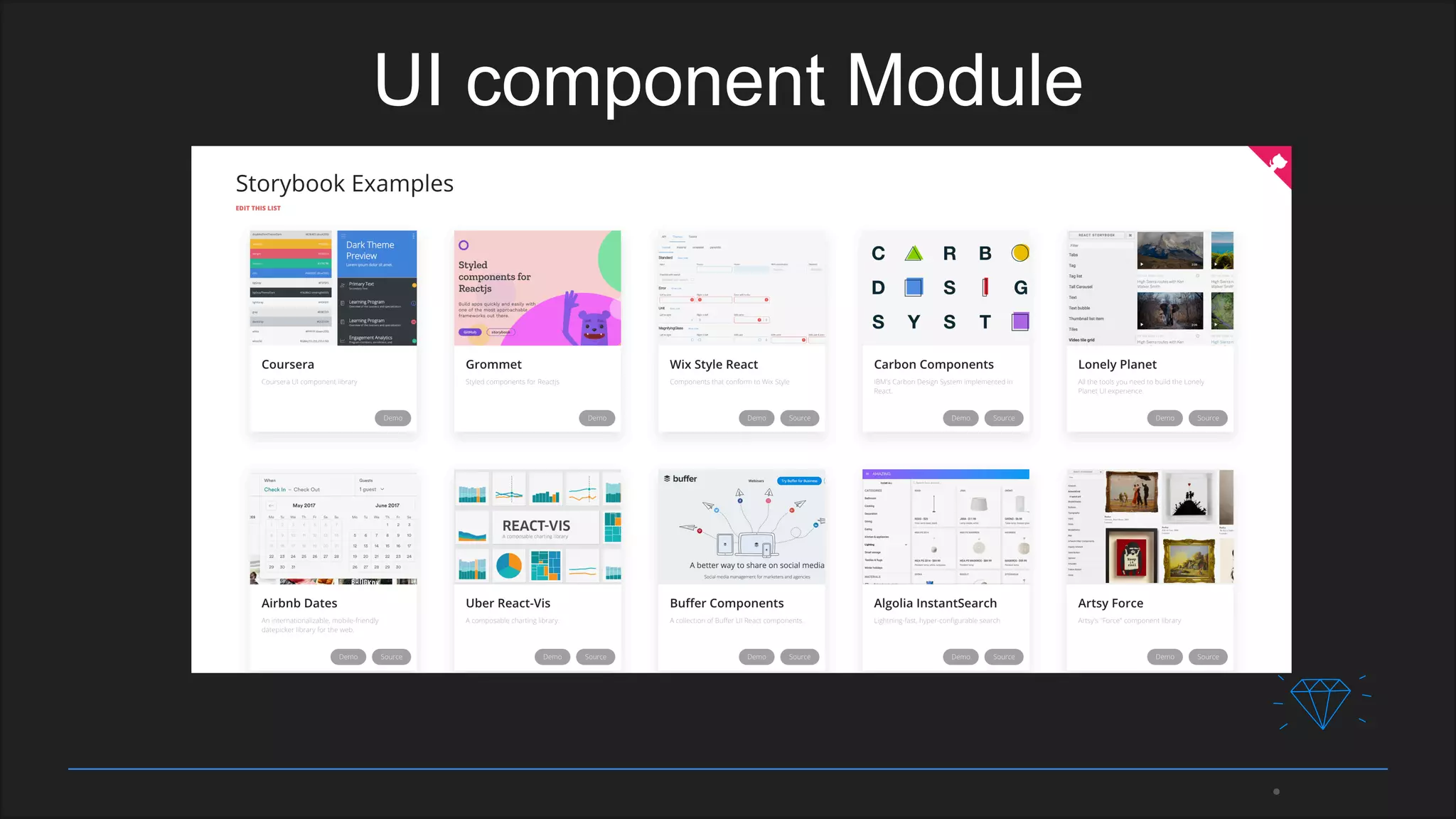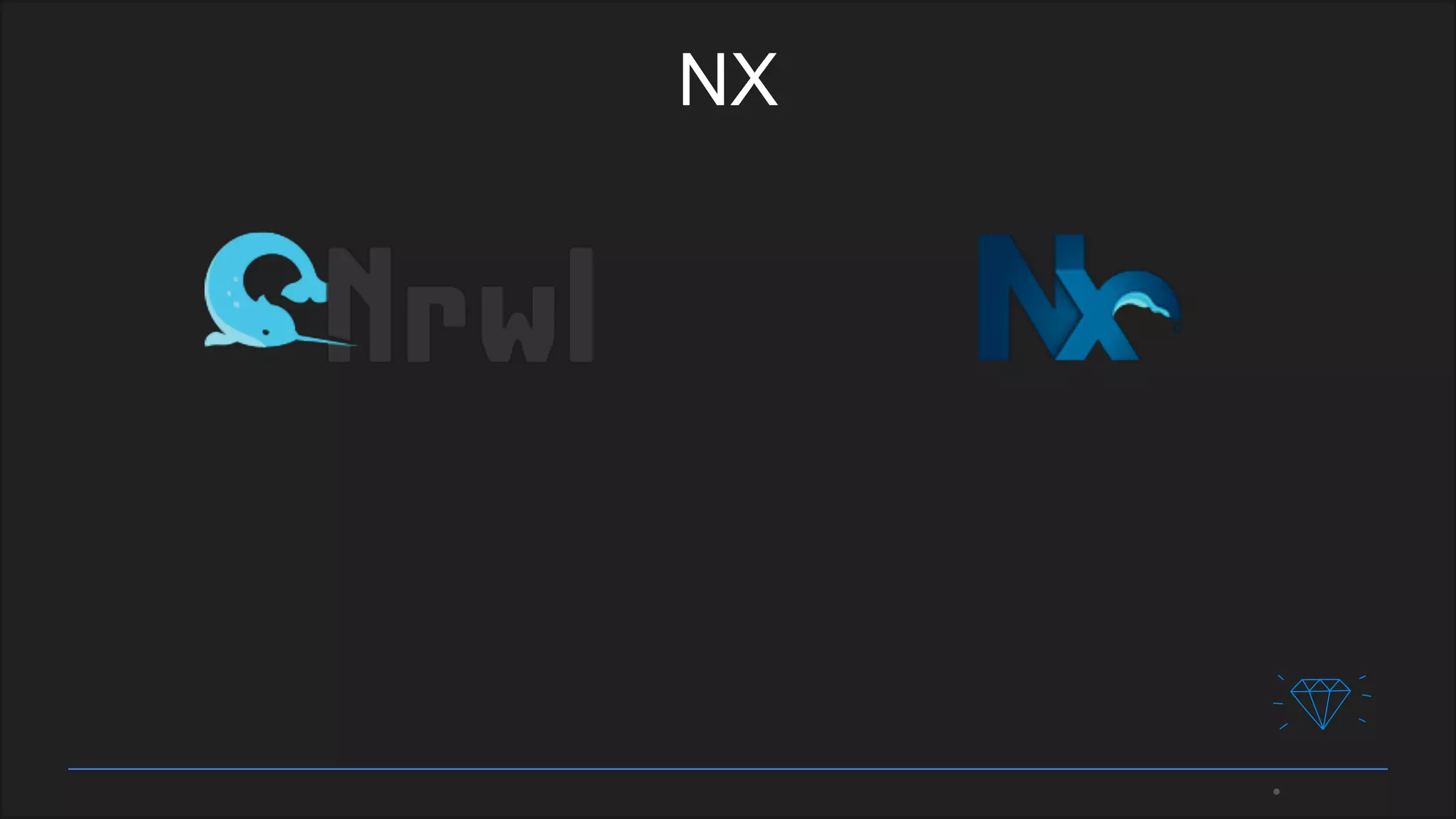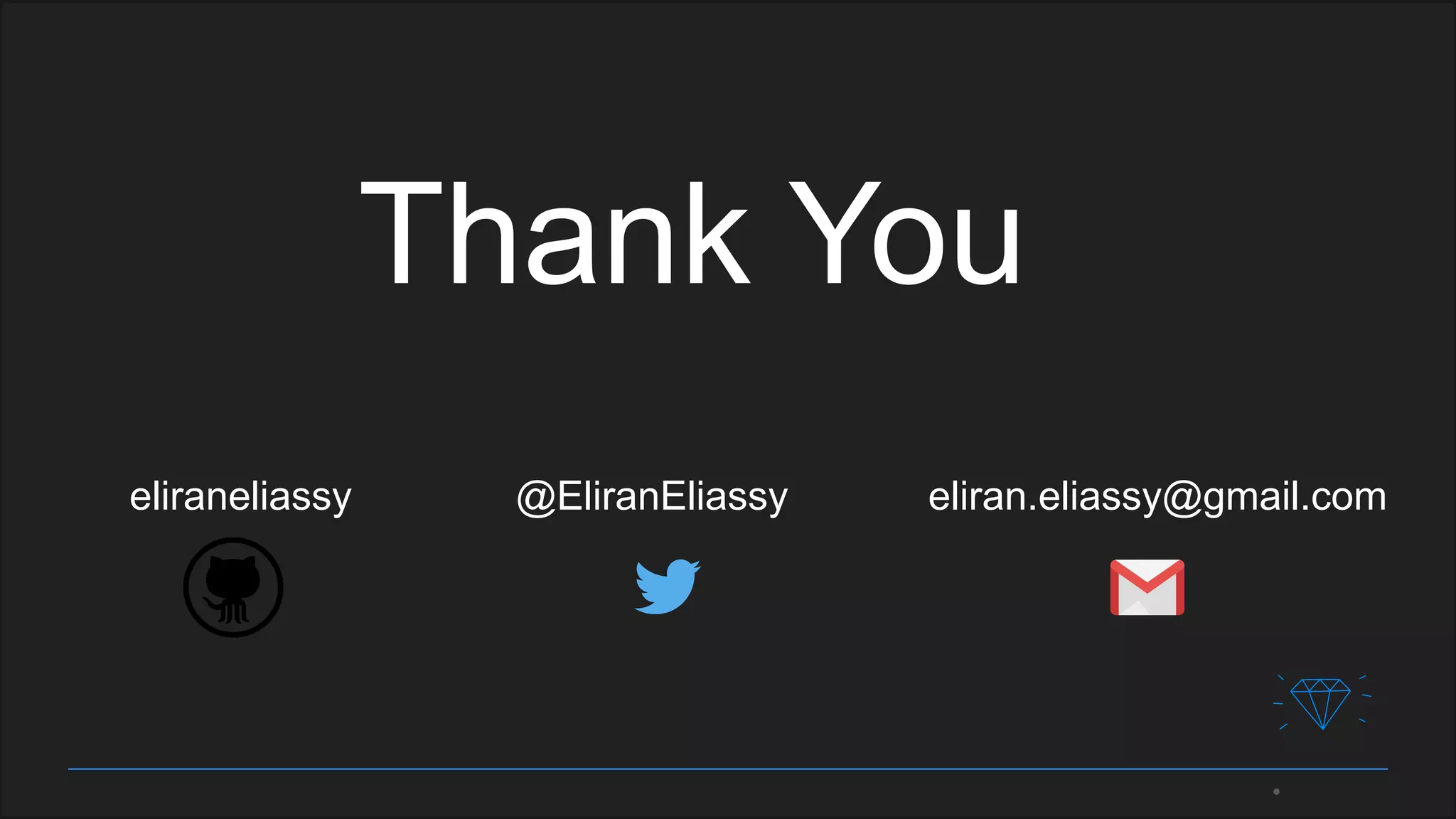The document outlines the development of a reusable logger package for Angular applications using dependency injection and various provider configurations. Key concepts covered include creating injection tokens, utilizing NgModule for providers, and the importance of decoupling components for testing and reusability. It provides examples of different provider methods such as useClass, useValue, and useFactory, as well as strategies for managing module dependencies.
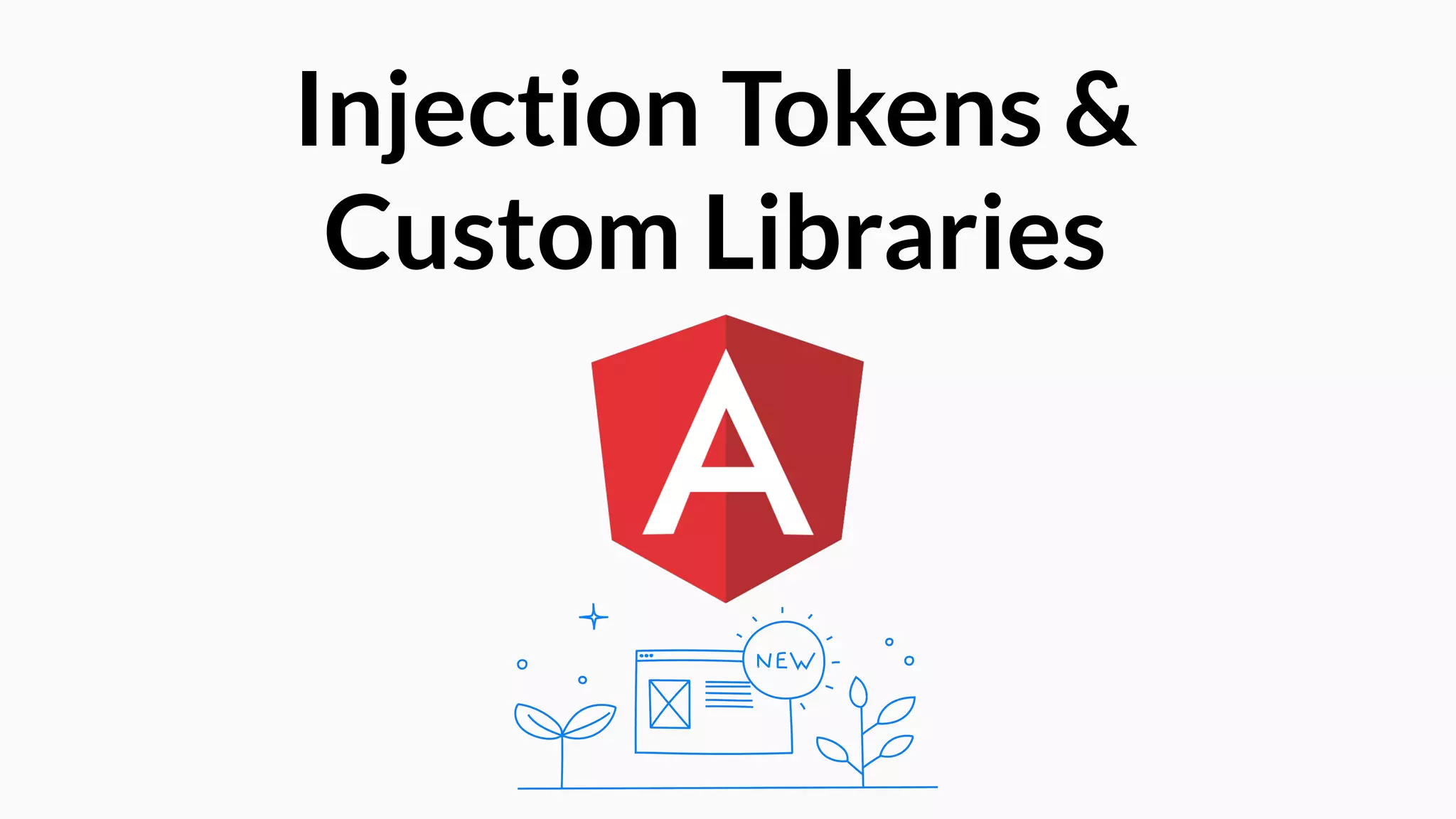


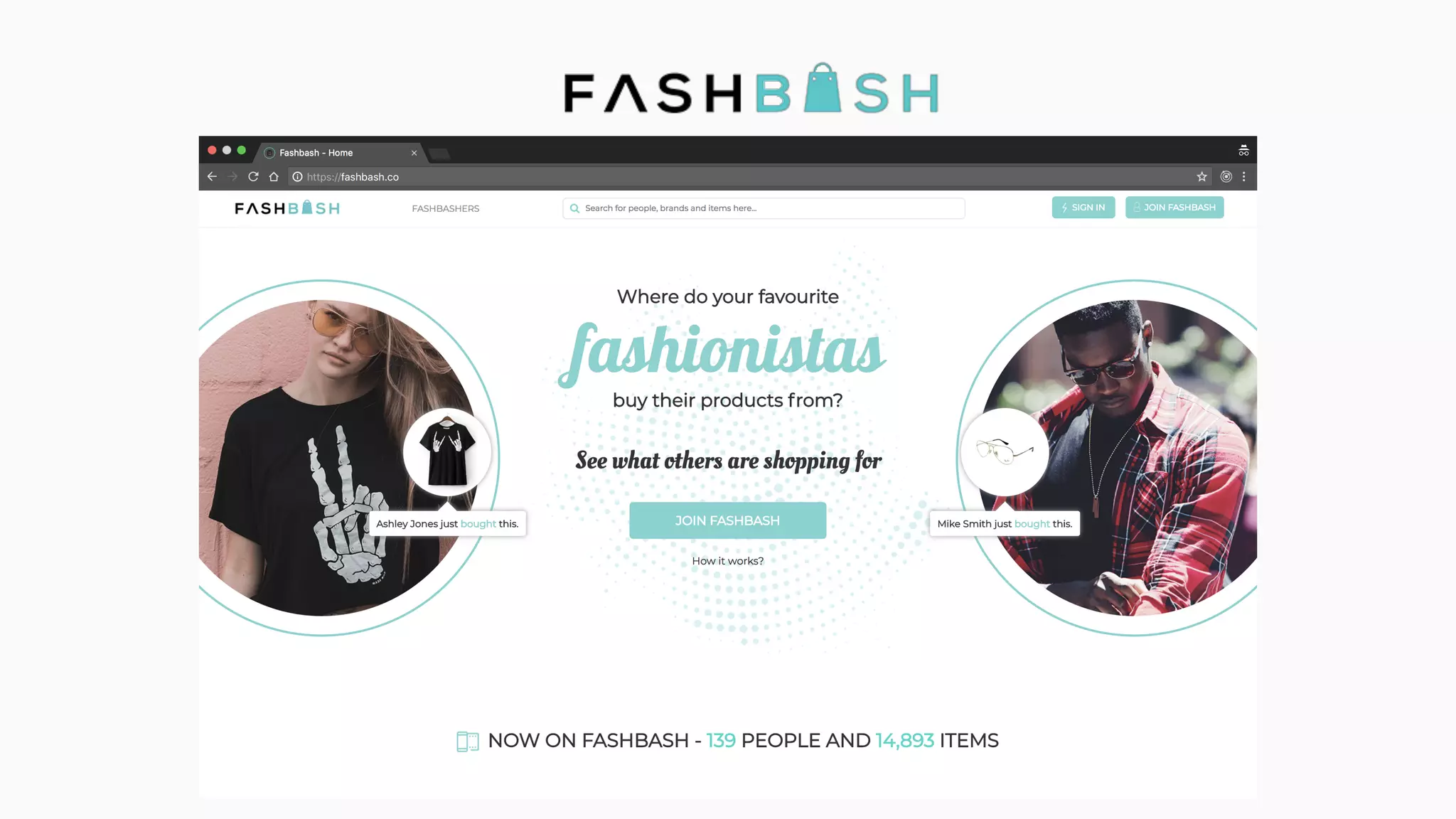

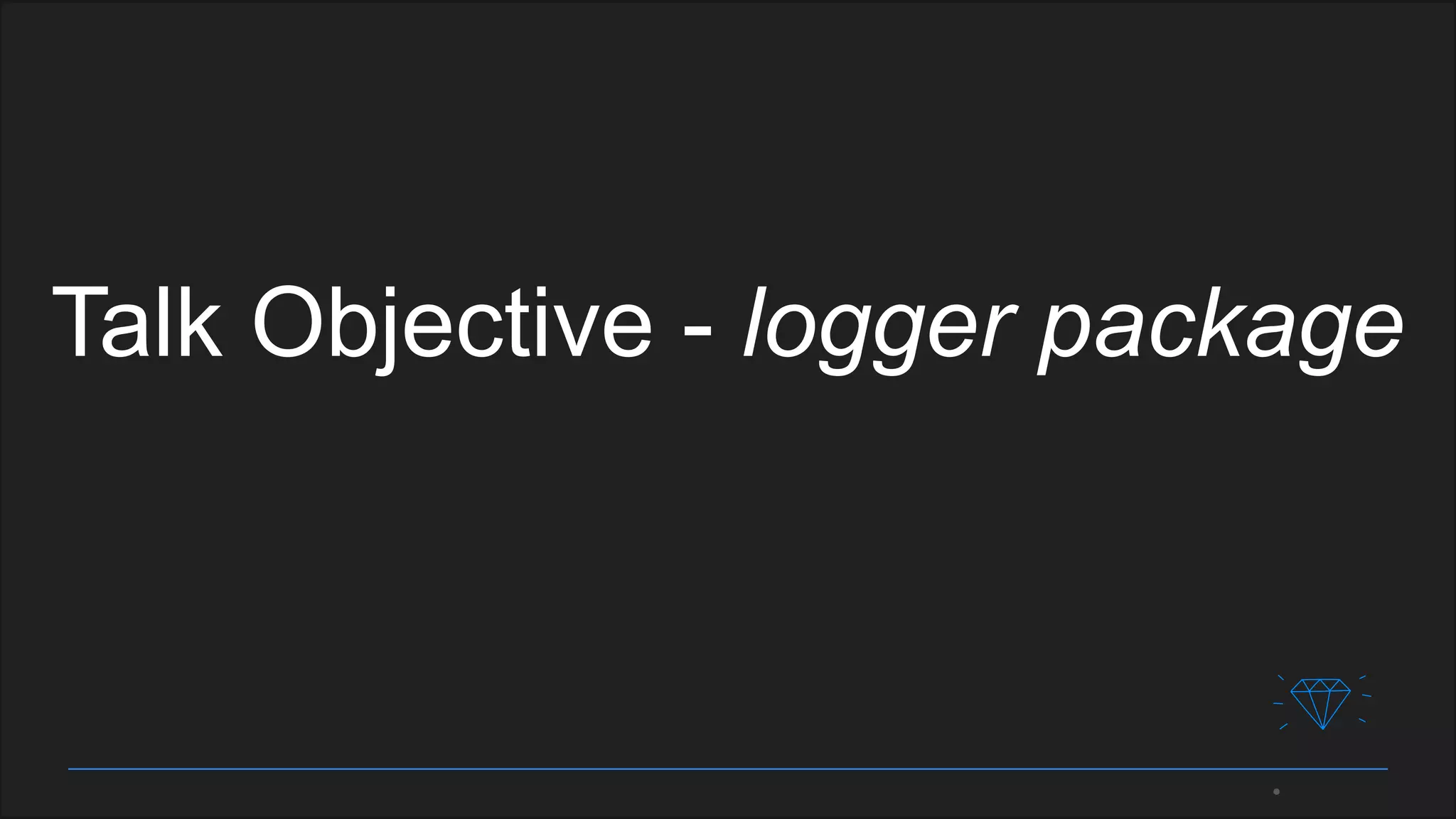
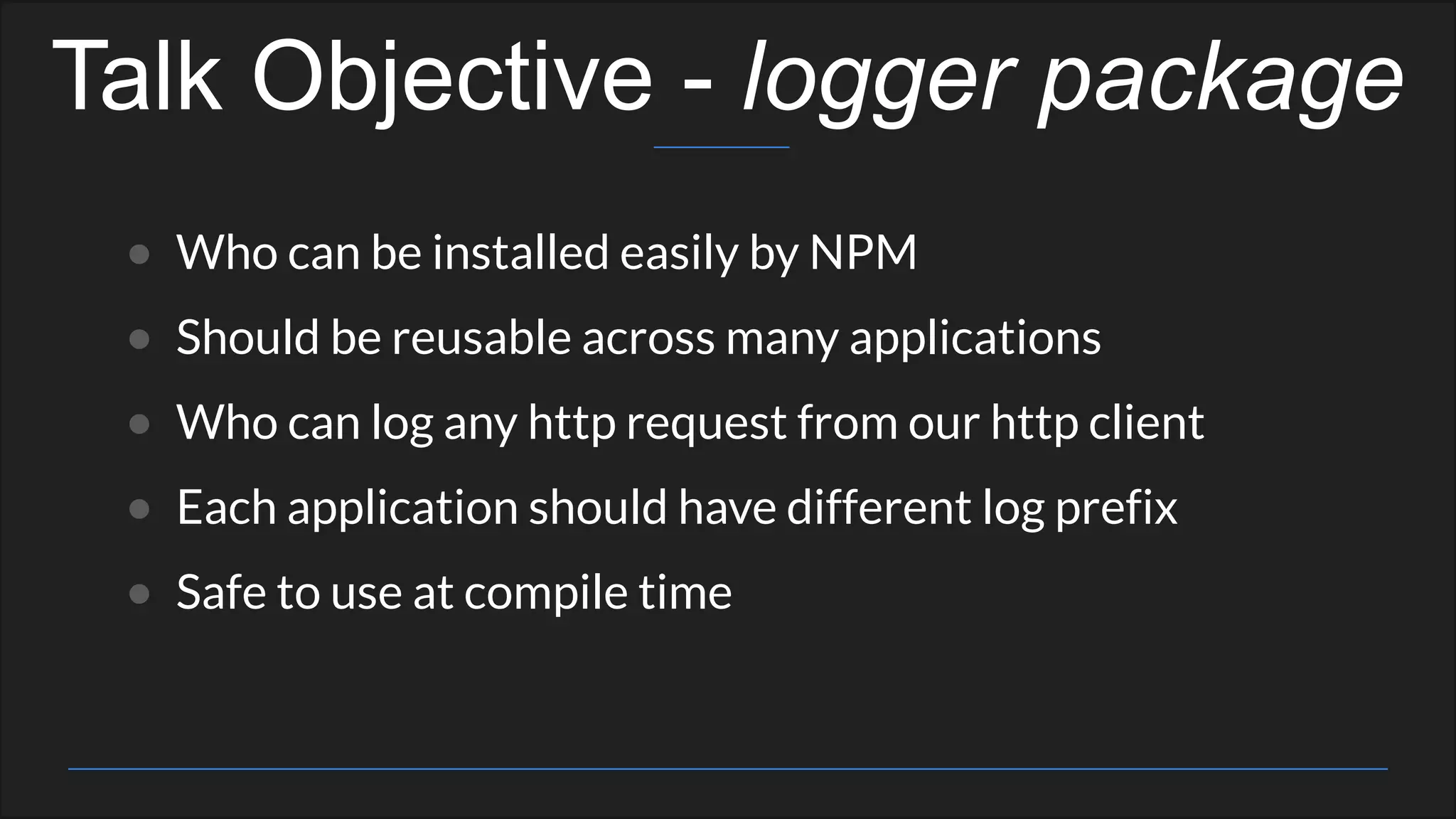
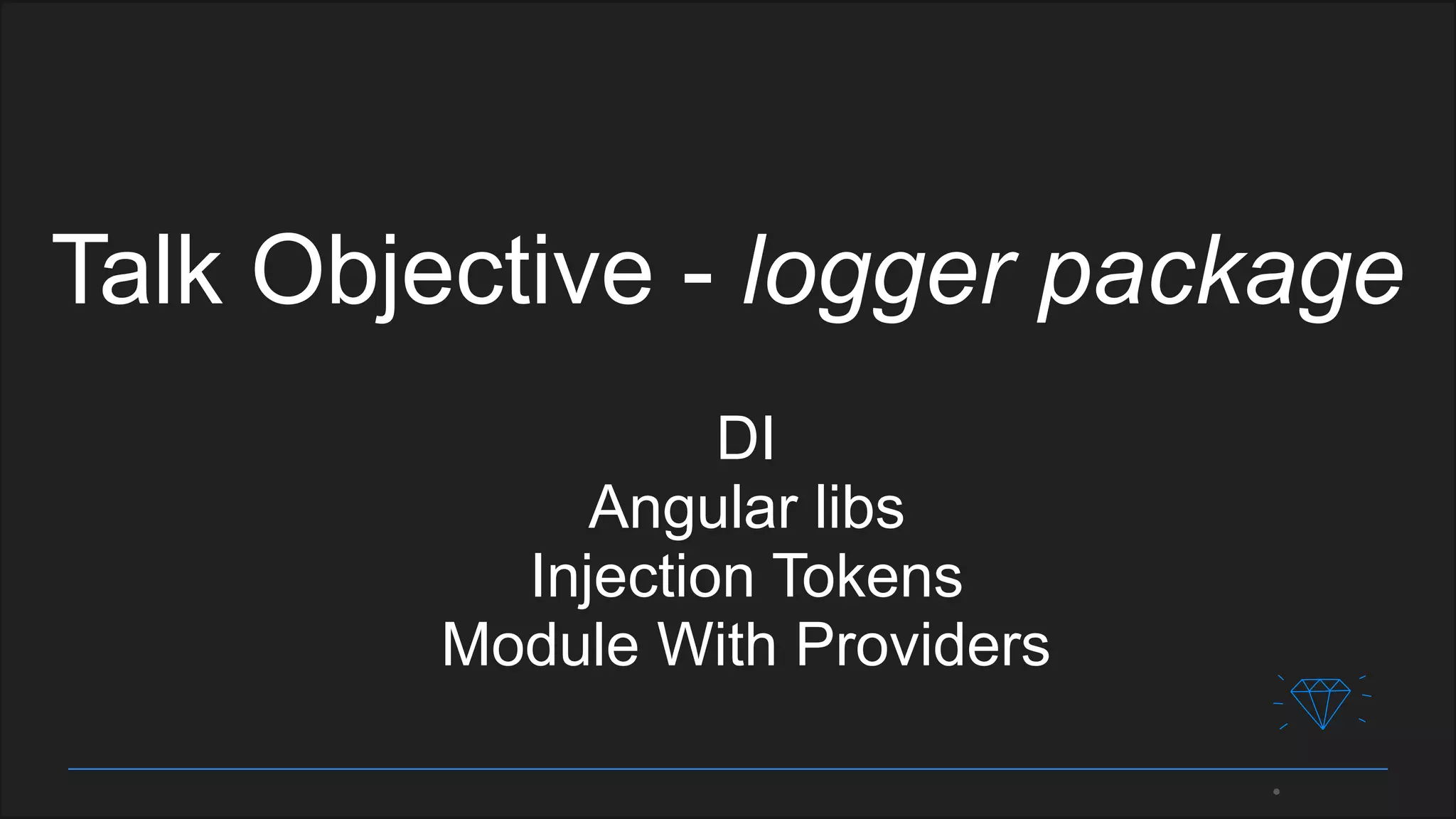
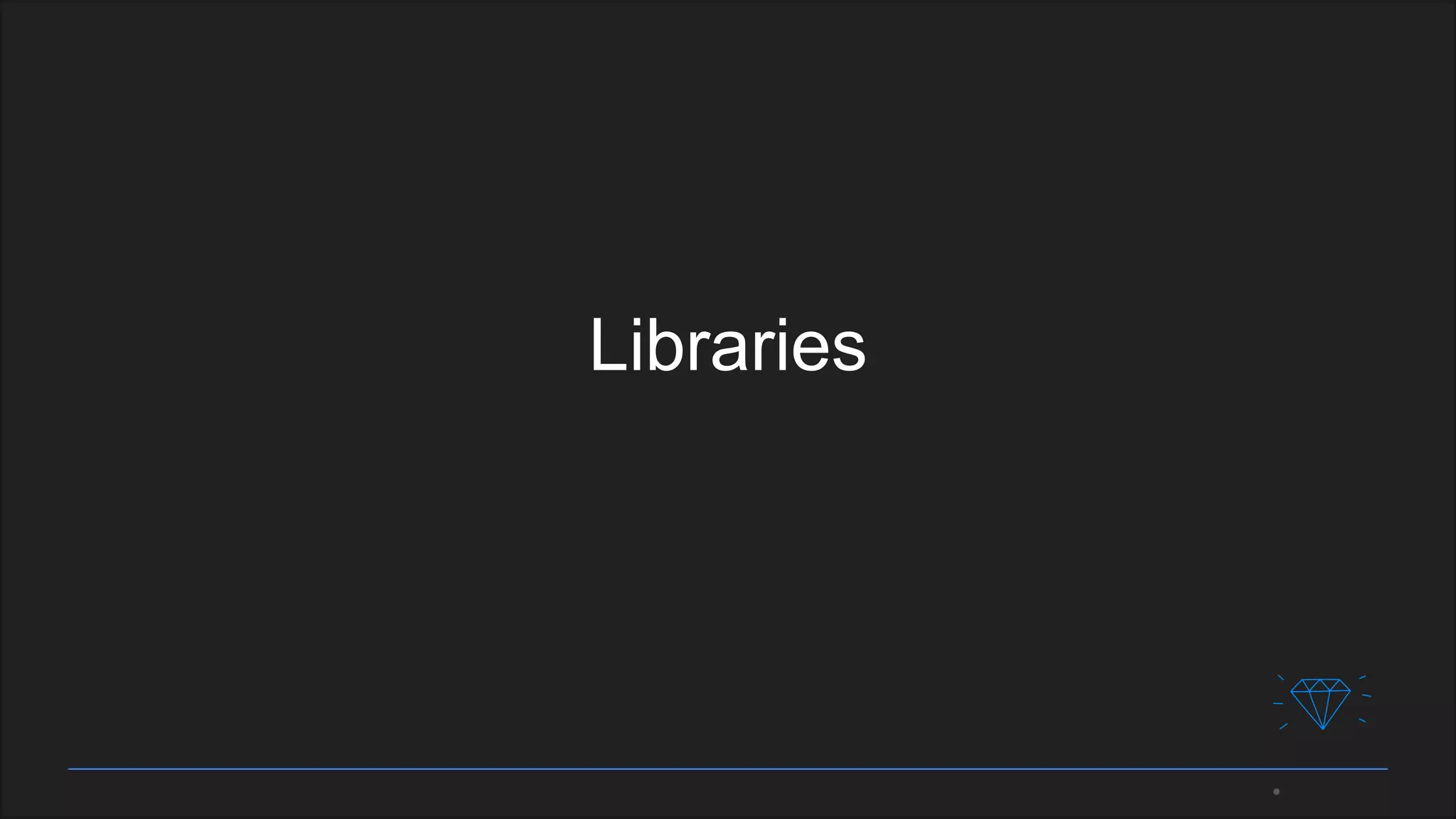
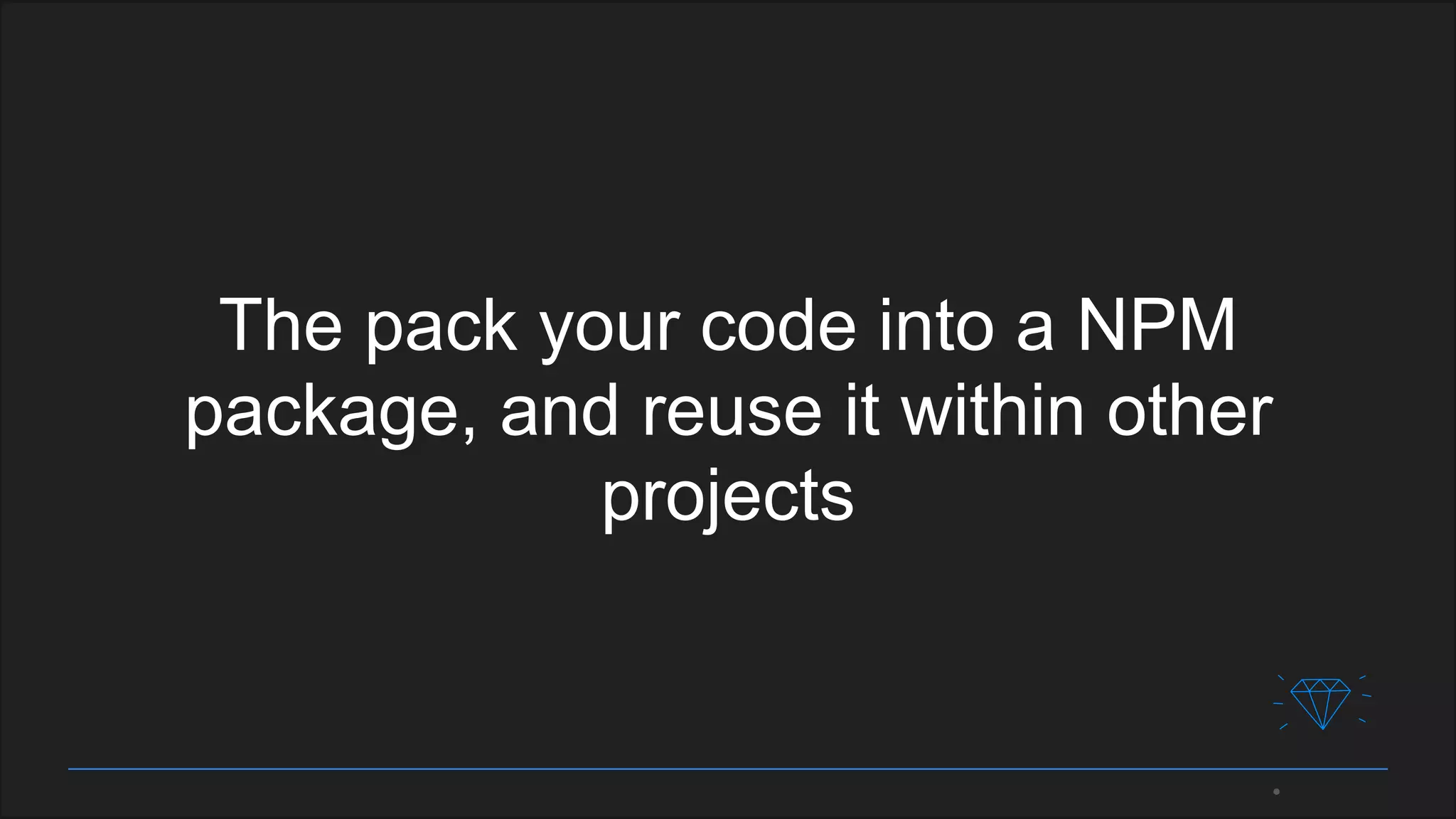
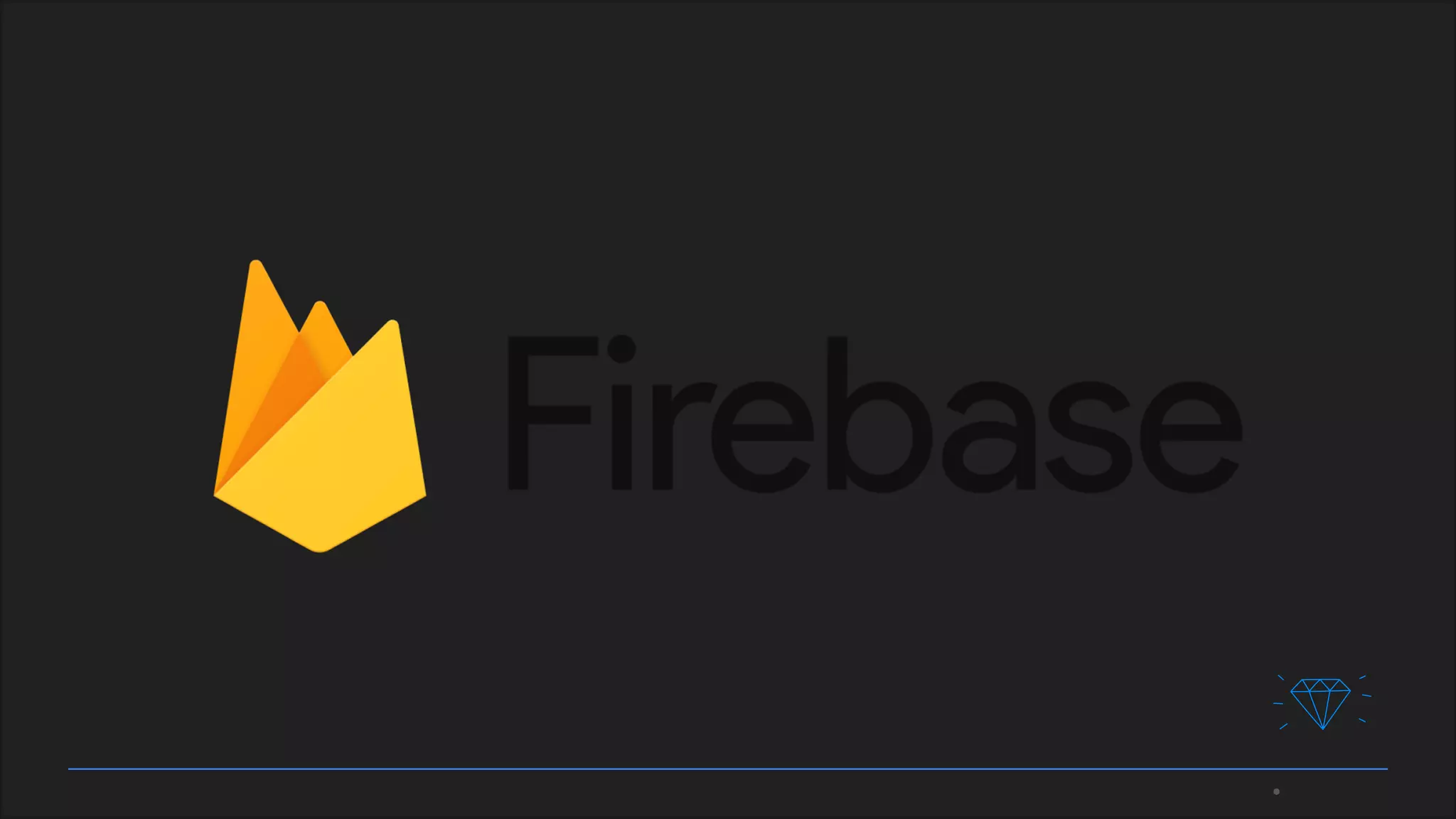
![@NgModule({ declarations: [...], imports: [ AngularFireModule.initializeApp({ apiKey: “<YOUR API KEY>", authDomain: “<AUTH DOMAIN>", databaseURL: “<DB URL>", projectId: “<PROJECT ID>", storageBucket: “<STORAGE BUCKET>", messagingSenderId: “<MESSAGING ID>" }), ], providers: [...], bootstrap: [AppComponent] }) export class AppModule { }](https://image.slidesharecdn.com/angular-injectiontokenslibraries-181128054618/75/Angular-injection-tokens-Custom-libraries-12-2048.jpg)
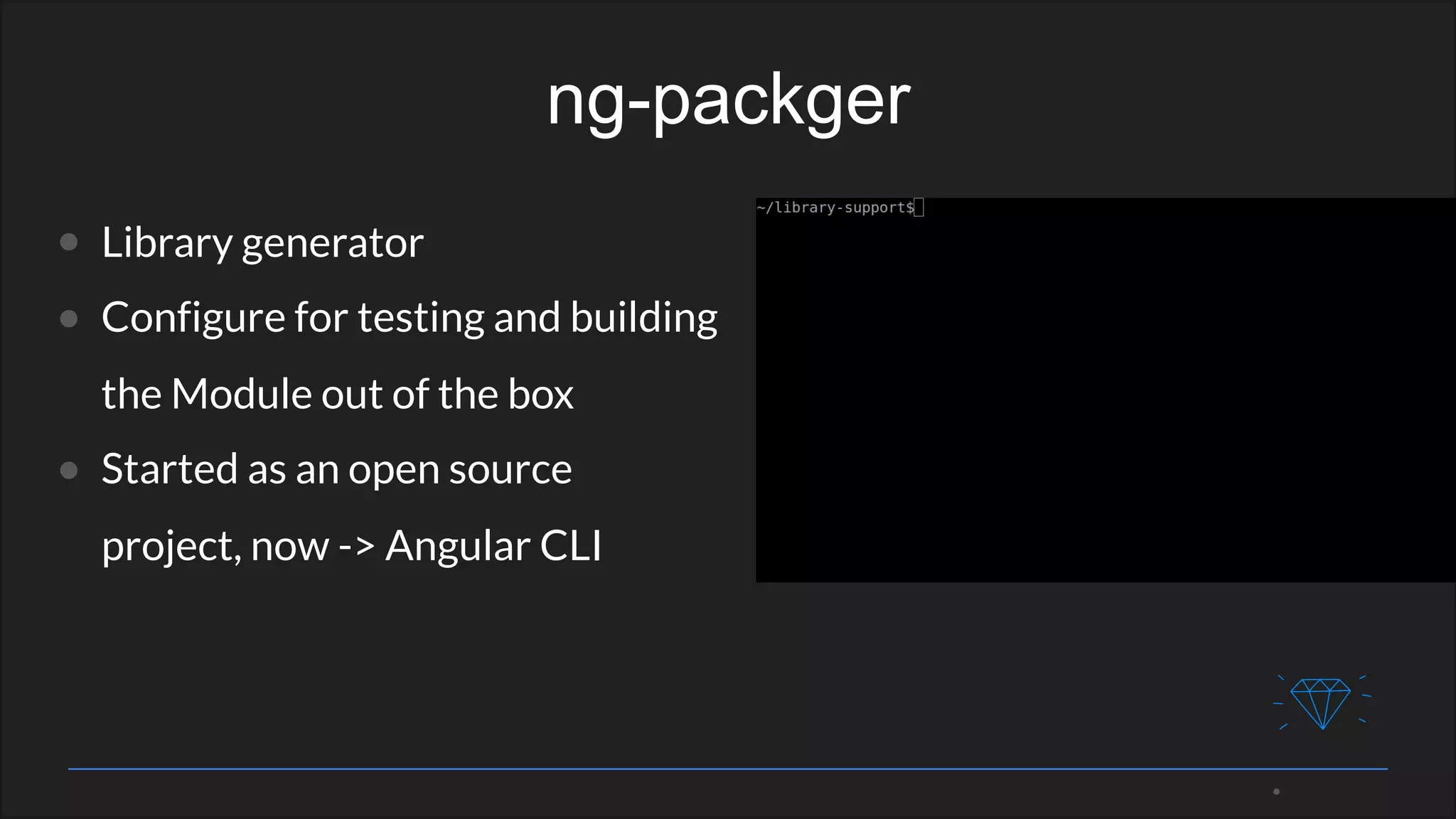

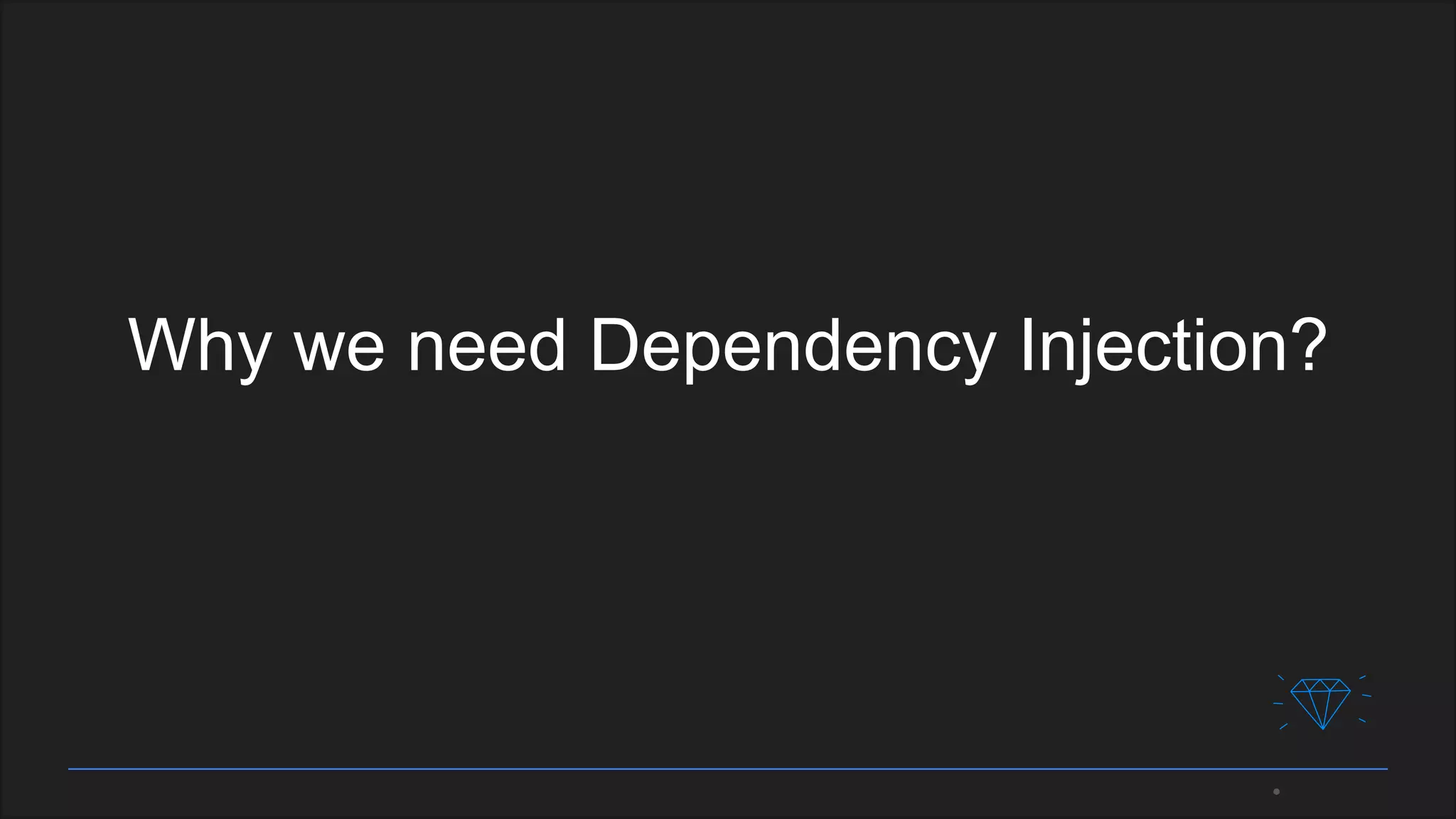
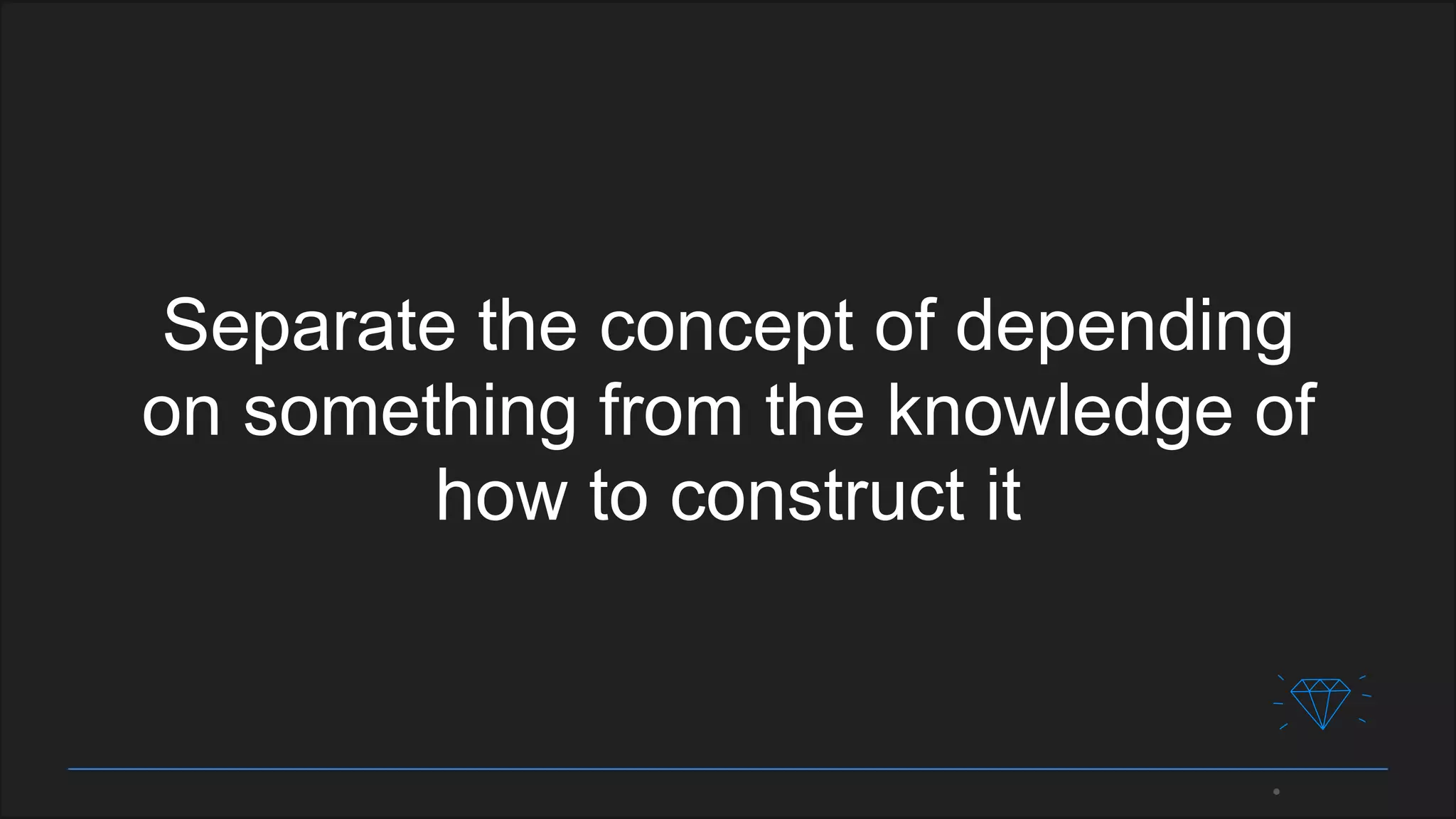

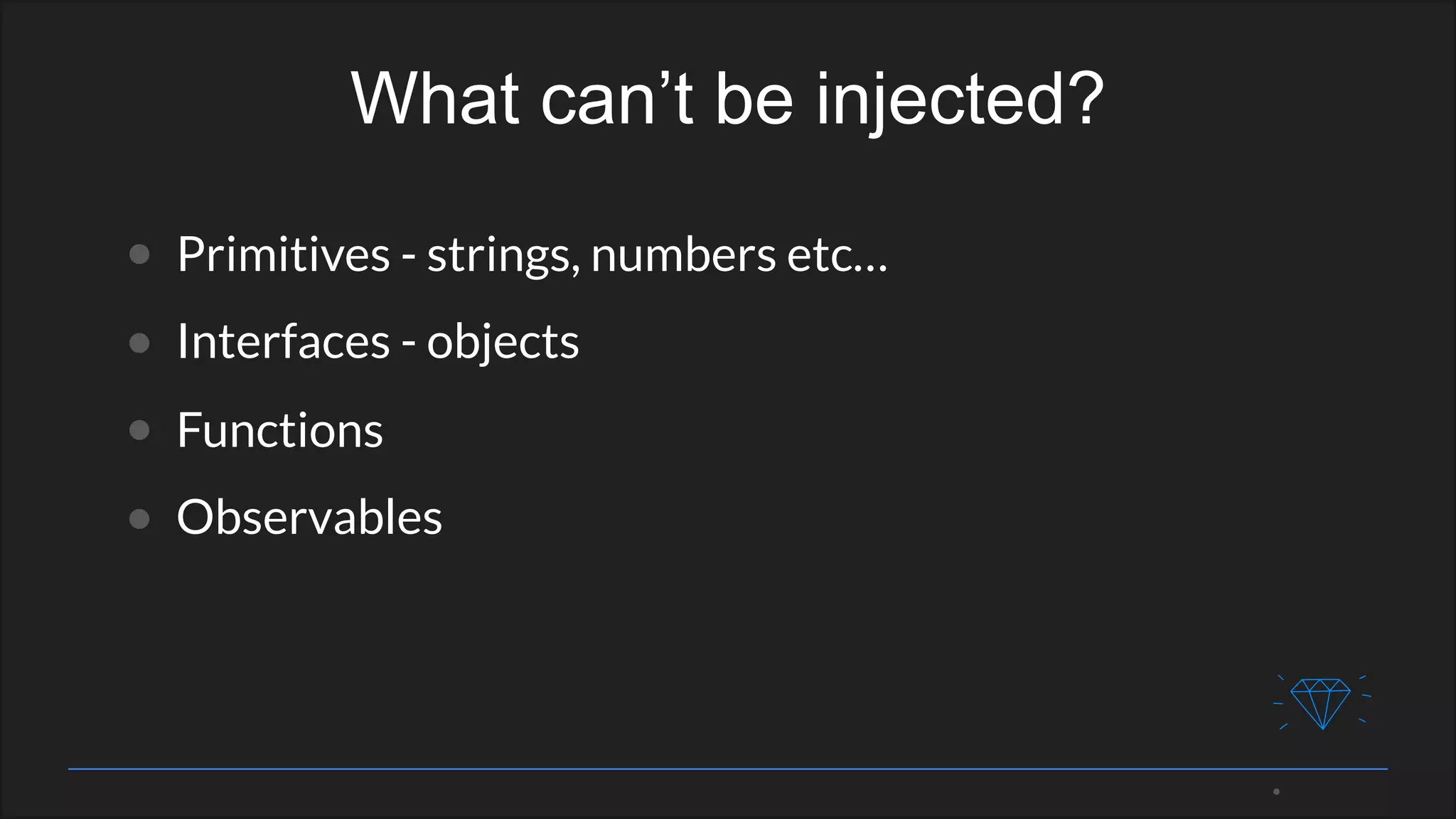
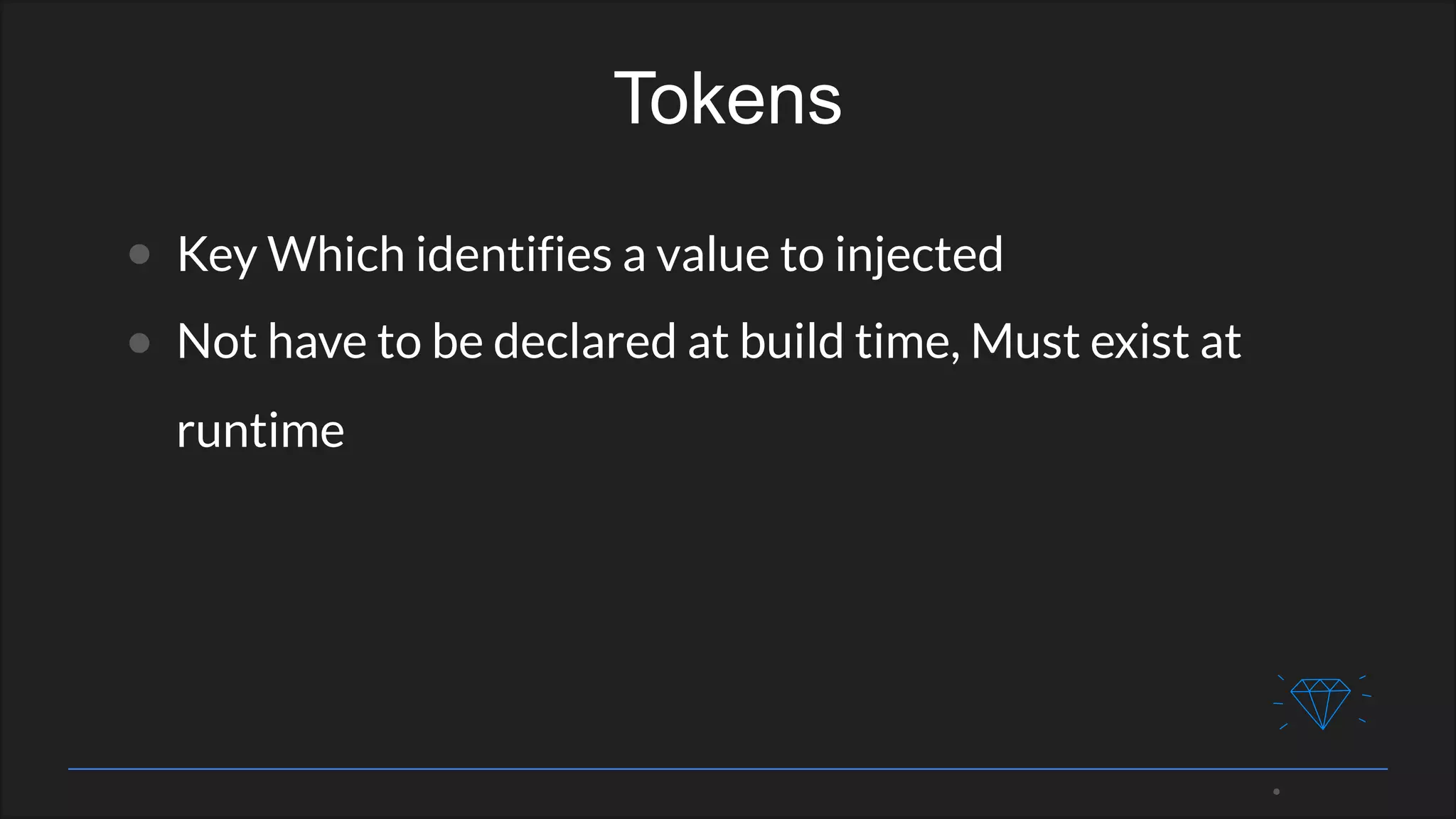
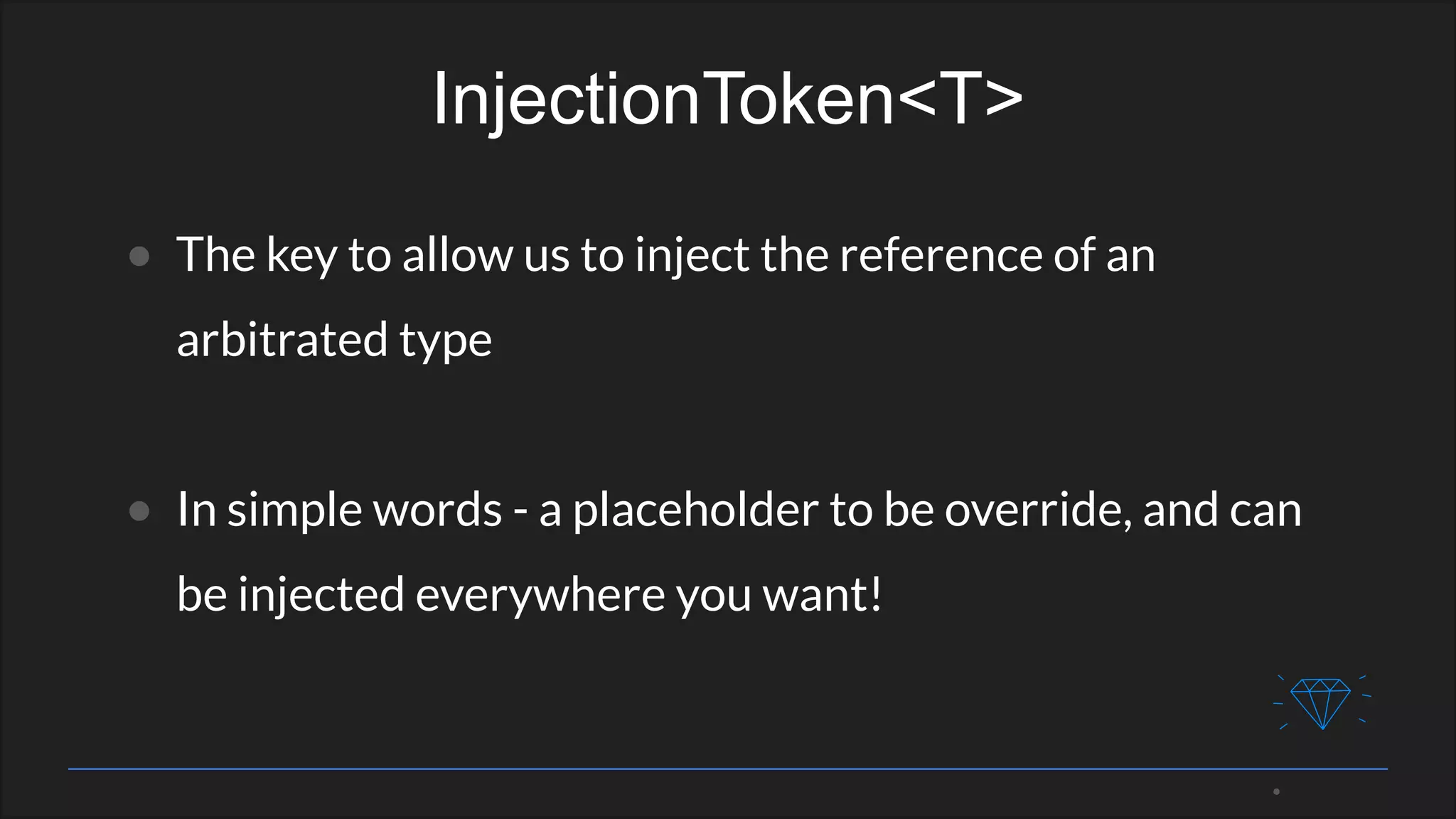
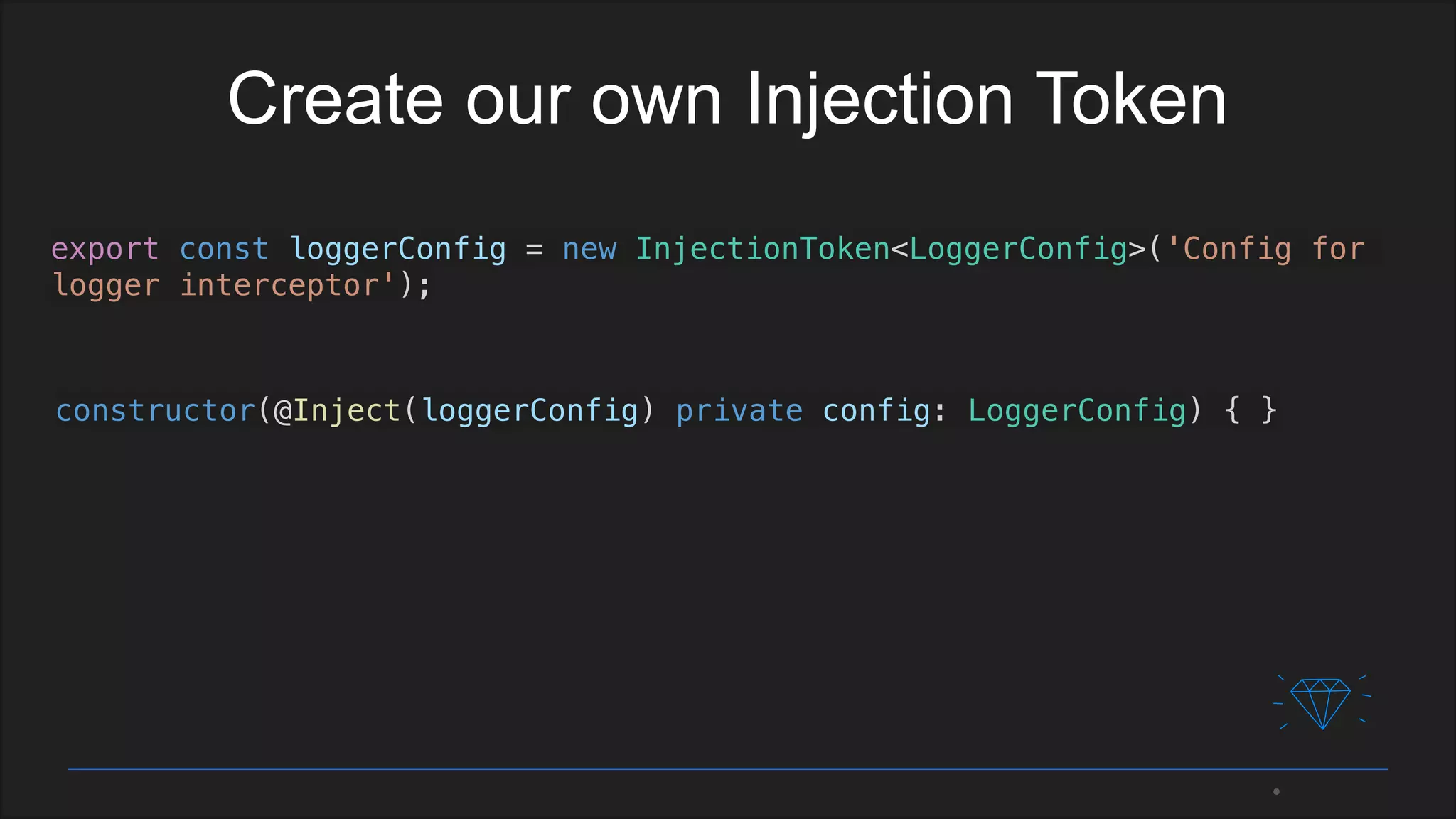
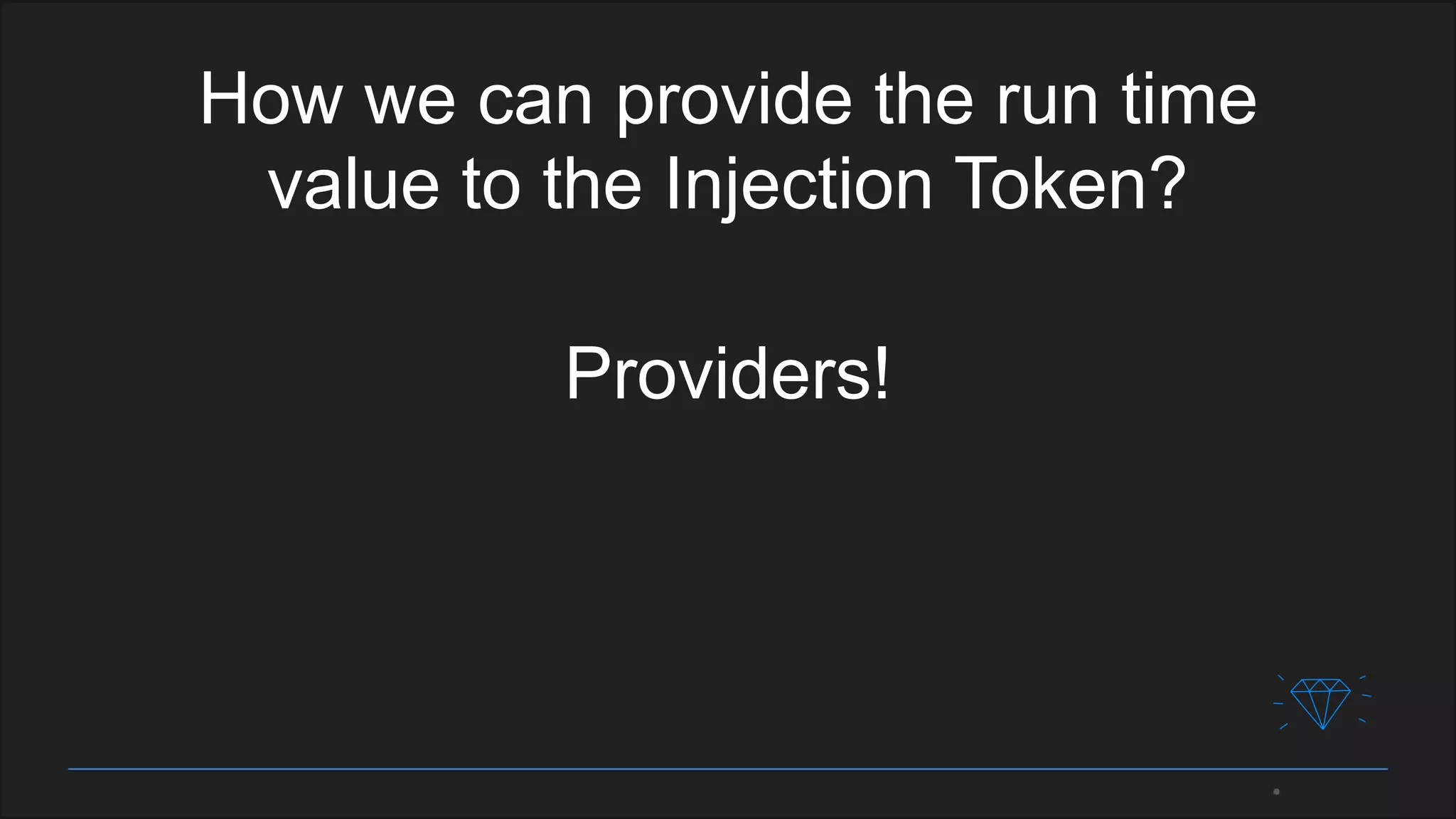
![Provide the value useClass @NgModule({ declarations: [], imports: [ ], providers: [ {provide: LoggerService, useClass: LoggerService}], exports: [LoggerComponent] })](https://image.slidesharecdn.com/angular-injectiontokenslibraries-181128054618/75/Angular-injection-tokens-Custom-libraries-23-2048.jpg)
![Provide the value useClass - syntactic sugar @NgModule({ declarations: [], imports: [ ], providers: [LoggerService], exports: [LoggerComponent] })](https://image.slidesharecdn.com/angular-injectiontokenslibraries-181128054618/75/Angular-injection-tokens-Custom-libraries-24-2048.jpg)
![Provide the value useValue @NgModule({ declarations: [], imports: [ ], providers: [{ provide: loggerConfig, useValue: {appName: 'APP1'} }], exports: [LoggerComponent] })](https://image.slidesharecdn.com/angular-injectiontokenslibraries-181128054618/75/Angular-injection-tokens-Custom-libraries-25-2048.jpg)
![Provide the value useExisting @NgModule({ declarations: [], imports: [ ], providers: [{ provide: LoggerService, useExisting: HttpLoggerService }], exports: [LoggerComponent] })](https://image.slidesharecdn.com/angular-injectiontokenslibraries-181128054618/75/Angular-injection-tokens-Custom-libraries-26-2048.jpg)
![Provide the value useFactory @NgModule({ declarations: [], imports: [ ], providers: [{ provide: LoggerService, useFactory: () => { return new LoggerService(); } }], exports: [LoggerComponent] })](https://image.slidesharecdn.com/angular-injectiontokenslibraries-181128054618/75/Angular-injection-tokens-Custom-libraries-27-2048.jpg)
![Multi providers ● We have the ability to provide multi providers into the same Token -
HTTP_INTERCEPTOR, APP_INITIZALIER @NgModule({ bootstrap: [AppComponent], imports: [...], providers: [ { provide: HTTP_INTERCEPTORS, useClass: TokenInterceptor, multi: true }, { provide: HTTP_INTERCEPTORS, useClass: LoggerService, multi: true } ] })](https://image.slidesharecdn.com/angular-injectiontokenslibraries-181128054618/75/Angular-injection-tokens-Custom-libraries-28-2048.jpg)
![Deps (dependencies) ● Sometimes providers depends on other providers to get instantiated. @NgModule({ declarations: [], imports: [ ], providers: [ { provide: APP_INITIALIZER, useFactory: init_app, deps: [AppInitService], multi: true }, ], exports: [LoggerComponent] })](https://image.slidesharecdn.com/angular-injectiontokenslibraries-181128054618/75/Angular-injection-tokens-Custom-libraries-29-2048.jpg)
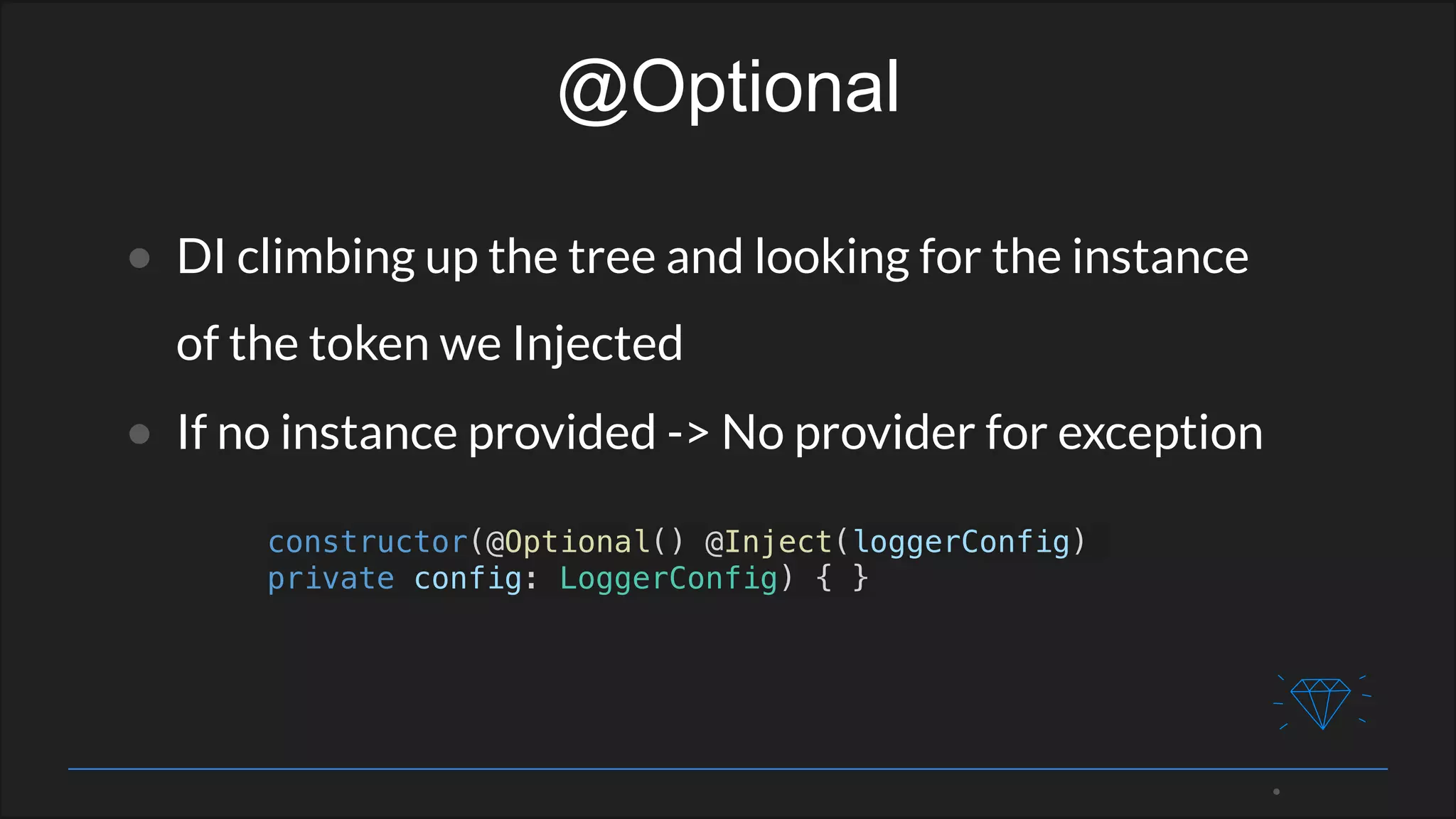

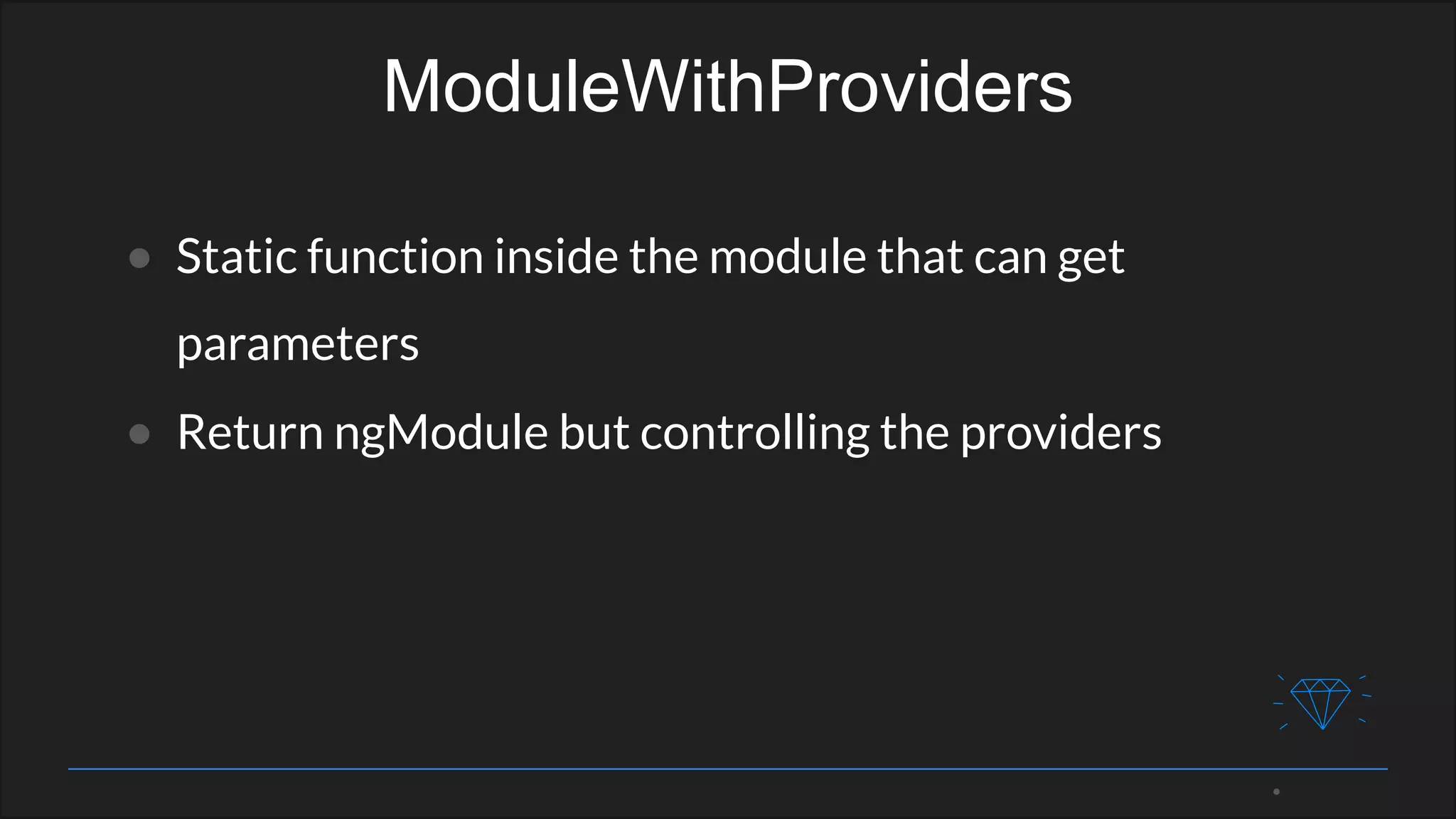
![ModuleWithProviders - Angular Router export class RouterModule { static forRoot(routes: Routes, config?: ExtraOptions): ModuleWithProviders<RouterModule> { return { ngModule: RouterModule, providers: [ ... ], }; } }](https://image.slidesharecdn.com/angular-injectiontokenslibraries-181128054618/75/Angular-injection-tokens-Custom-libraries-33-2048.jpg)
